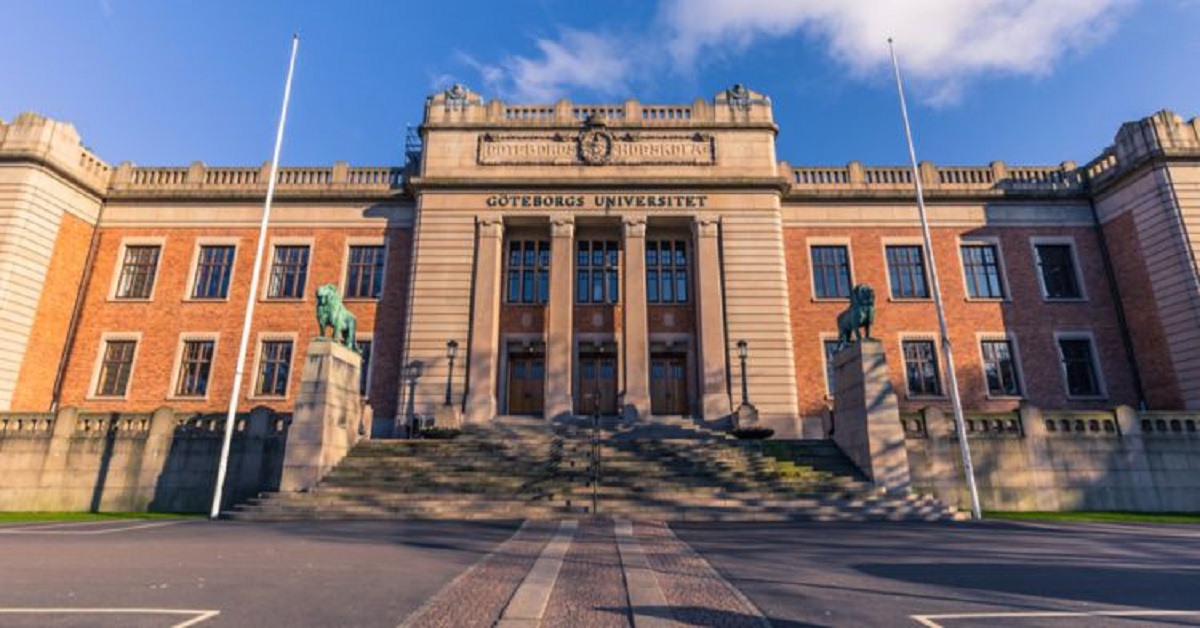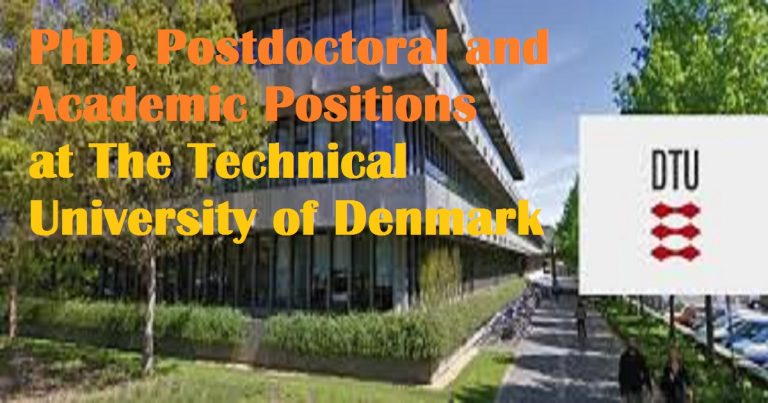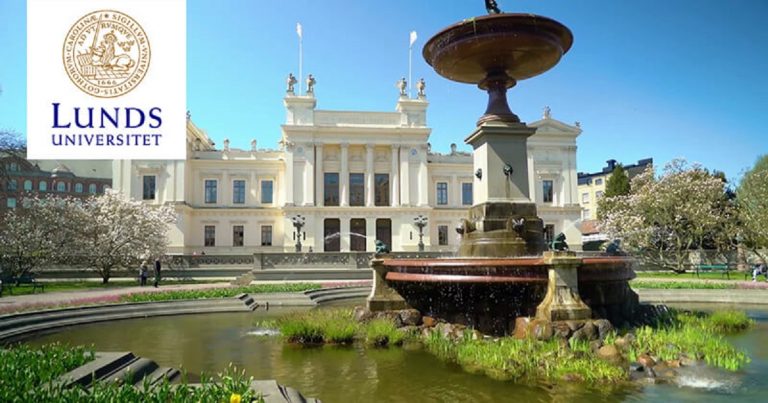
The University of Gothenburg tackles society’s challenges with diverse knowledge. 53 500 students and 6 500 employees make the university a large and inspiring place to work and study. Strong research and attractive study programmes attract scientists and students from around the world. With new knowledge and new perspectives, the University contributes to a better future.
The Department of Clinical Neuroscience is located in the Institute of Neuroscience and Physiology at the Faculty of Health Care Sciences at the Sahlgrenska Academy, University of Gothenburg. The department conducts research in neurology, neurosurgery, clinical neurophysiology, ophthalmology, rehabilitation medicine and experimental neuroscience in close collaboration with the Sahlgrenska University Hospital. The department is responsible for courses in the educational programs for prospective physicians, biomedical analysts, occupational therapists, physiotherapists and speech therapists. We also carry out commissioned educational programs in collaboration with the Department of Neurology at the Sahlgrenska University Hospital. There are around twenty research groups at the department.
Project title: The role of reactive astrocytes in neurodegeneration – towards identification of novel treatment strategies
Job assignments
The PhD education in Medical Science comprises carrying out a scientific project and completing at least 30 credits of courses at third-cycle level. The doctoral student must also write a scientific compilation thesis or monograph corresponding to at least 120 credits. For more information about third-cycle studies at Sahlgrenska Academy, see https://www.gu.se/en/sahlgrenska-akademin/doctoral-studies
Project: We and others demonstrated that astrocytes are involved in processes ranging from the establishment and maintenance of neuronal synapses, regulation of synaptic transmission and blood flow, to the control of both neuroprotective and regenerative responses in the brain. These findings identify astrocytes as a major factor in the maintenance of brain health, point to astrocytes as central players in many brain diseases, and make them a novel target for the treatment of brain diseases. We and others previously demonstrated that reactive gliosis, while beneficial in many neurological diseases, can in specific disease contexts become maladaptive, with severe consequences for the CNS homeostasis and function. We hypothesize that the maladaptive response of reactive astrocytes is the core mechanism leading to the development and progression of some neurodegenerative disorders. The project will address cellular and molecular mechanisms of astrocyte malfunction and provide the basis for designing future treatment strategies for neurodegenerative conditions with maladaptive role of reactive astrocytes. The project will include advanced cell culture techniques, including iPS-derived astrocytes, immunocytochemistry, high content image and data analysis, transcriptomics, bioinformatics and related analytical methods.
The successful candidate will work in a highly dedicated international team of people with competence in biochemistry, biology, biomedicine, neuroscience and neurology. The project will benefit from the frontline international, multidisciplinary collaborative environment of the EU Joint Project in Rare Diseases ALEXANDER, as well as from the ongoing collaborations with AstraZeneca and TATAA Biocenter. We are looking for a highly motivated candidate with very well documented experience in molecular and cell biology laboratory work. The candidate should have medical, clinical or biological background, strong interest in neuroscience and in the understanding of the molecular mechanisms of human diseases. Since we work in an international environment, excellent knowledge of English, both in writing and in speaking, is necessary.
Third-cycle studies are equivalent to four year full-time and lead to a Degree of Doctor. Those appointed to doctoral studentships shall primarily devote themselves to their studies. Those appointed to doctoral studentships may, however, work to a limited extent with educational tasks, research and administration (departmental duties). Before a PhD degree has been awarded, duties of this kind may not comprise more than 20 per cent of a full-time post.
Eligibility
To be eligible for third-cycle studies, the applicant must meet both the general and specific entry requirements.
A person meets the general entry requirements for third-cycle studies if he or she:
1. has been awarded a second-cycle qualification
2. has satisfied the requirements for courses comprising at least 240 credits of which at least 60 credits were awarded in the second-cycle, or
3. has acquired substantially equivalent knowledge in some other way in Sweden or abroad
A person meets the specific entry requirements for third-cycle studies in Medical Science if he or she has successfully completed the English B/6 course or is considered to have acquired equivalent knowledge through previous studies
Assessment
In selecting between applicants who meet the general and specific entry requirements, their ability to benefit from third-cycle studies shall be taken into account. The assessment shall attach particular importance to documented qualifications for:
– specific knowledge and skills within the subject area and related research fields
– experience of scientific theory and relevant research methodology
– scientific analysis and presentation verified through thesis, degree project, scientific journals or the like.
Employment
After admission to third-cycle studies you will be appointed to doctoral studentship. Regulations for employment of doctoral students are given in SFS 1993:100. The initial appointment may apply for no longer than one year. An appointment may be renewed for no more than two years at a time. A person may be appointed to a doctoral studentship for a total of eight years. The total employment period may, however, not exceed the time corresponding to full-time third-cycle study for four years.
Location: Sahlgrenska Academy, Institute of Neuroscience and Physiology, Department of Clinical Neuroscience. Extent: 100%. First day of employment: as agreed.
Salaries for doctoral students are regulated in a local agreement at the University.
For further information regarding the position
For more information about the project please contact the principal supervisor,
Milos Pekny, Professor, Institute of Neuroscience and Physiology,
e-mail: [email protected]
Unions
Union representatives at the University of Gothenburg:
https://www.gu.se/en/about-the-university/work-at-the-university-of-gothenburg/how-to-apply
Information for International Applicants
Choosing a career in a foreign country is a big step. Thus, to give you a general idea of what we and Gothenburg have to offer in terms of benefits and life in general for you and your family/spouse/partner please visit:
How to apply
In order to apply for a position at the University of Gothenburg, you have to register an account in our online recruitment system. It is the responsibility of the applicant to ensure that the application is complete in accordance with the instructions in the job advertisement, and that it is submitted before the deadline.
You must include the following, in pdf format
- Personal letter
- CV
- Diploma and transcripts showing that you meet with the general entry requirement
- Proof of completion of English 6 course or the acquired equivalent knowledge through previous studies
If your degree is from a university outside of Sweden, make sure that you attach a diploma and full transcripts that makes assessing your degree easier.
If your degree has not been verified by a Swedish authority you need to provide contact details to the issuing university, registrar or similar, that can verify the degree at our request.
For information on what you need to submit in order to fulfill the English language requirement see https://www.universityadmissions.se/en/entry-requirements/english-language-requirements/
Closing date: 2021-11-09
The University of Gothenburg promotes equal opportunities, equality and diversity.
Applications will be destroyed or returned (upon request) two years after the decision of employment has become final. Applications from the employed and from those who appeal the decision will not be returned.
In connection to this recruitment, we have already decided which recruitment channels we should use. We therefore decline further contact with vendors, recruitment and staffing companies.



